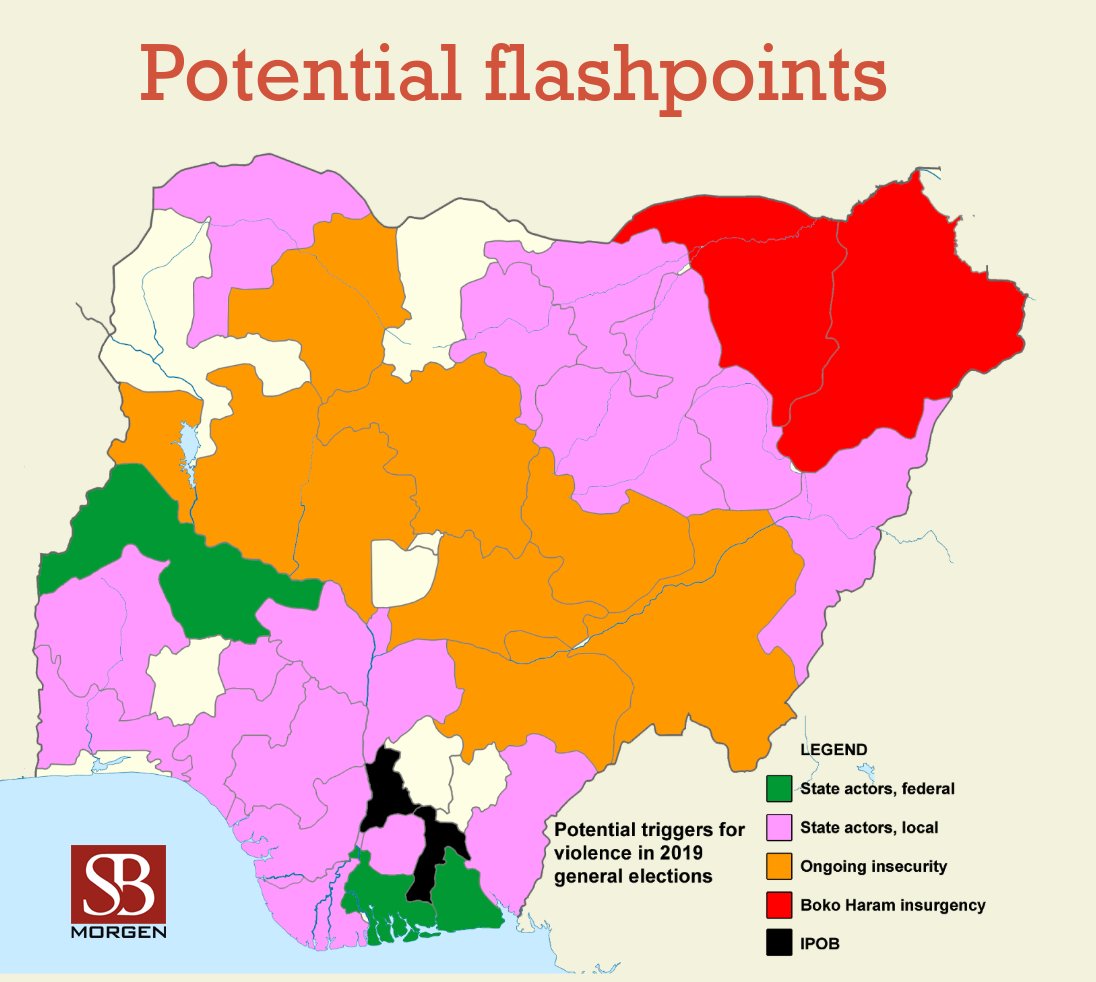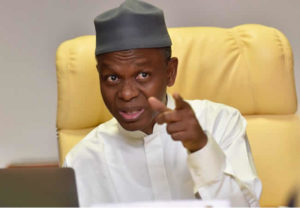Nigeria’s 2019 elections have begun to generate apprehension, both locally and internationally. In the last two elections, in 2011 and 2015, Nigeria recorded cases of post-election violence across various cities in the nation. In 2015, the Human Rights Commission reported 61 violent incidents – within 50 days – across 22 states which left at least 58 people dead.
Several reports are predicting multiple threats to the election including an escalation of the ongoing conflicts in various regions as a result of the polls, including a recent one by research firm, SBM Intelligence. Farmer-herder conflicts which have plagued the nation for more than a couple of years now is likely to be exacerbated during the election period. On the other hand, Boko Haram which continues to be active in the northeast will also likely take advantage of the diverted attention of Nigerians and security forces. The ethno-religious nature of the farmer-herder crisis which has deepened divisions between Christians and Muslims may have an implication on not just voting patterns, but also on the outcome of the general elections.
Among other threats, the National Democratic Institute (NDI) and the International Republican Institute (IRI), indicated in a joint report that Nigeria’s insecurity crises coupled with the perception of partisanship on the part of security forces could threaten voter participation and overall confidence in the outcome of the 2019 general elections. She feared that the outcome of the elections could still be undermined.
“Nigeria’s persistent insecurity, perceptions about the lack of neutrality on the part of security forces could undermine participation in the election and confidence in the outcome despite assurances to the contrary.”
According to her, irresponsible political rhetoric could threaten and consequently weaken public confidence in Nigeria’s electoral institutions and a potential to incite violence. She said that issues like vote-buying, illegal voting, and efforts to compromise the secrecy of the vote during elections could likely result in the rejection of election results or worse, post-election violence.
However, it is not entirely a bleak forecast. The report shows that Nigerians have expressed a strong commitment to democracy as well as a commitment to continued efforts in order to improve the country’s electoral process. If the 2019 general elections turn out to be credible and peaceful, it would positively reinforce Nigeria’s democratic institutions and would make Nigeria an example for other countries on the continent.
However, there is a tendency to erode trust in democratic institutions and hamper democratic progress if the polls are not sufficiently transparent, accountable, or inclusive by Nigerians.
The signing of the Peace Accord, is a symbolic move but politicians have to go beyond making public gestures but actually respect the outcome of the elections and address their electoral disputes in courts. This is the way to go if Nigeria must avoid violence after the election results are counted and released to the public.




